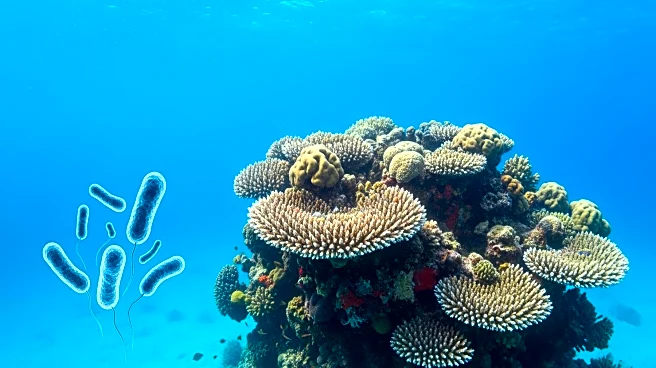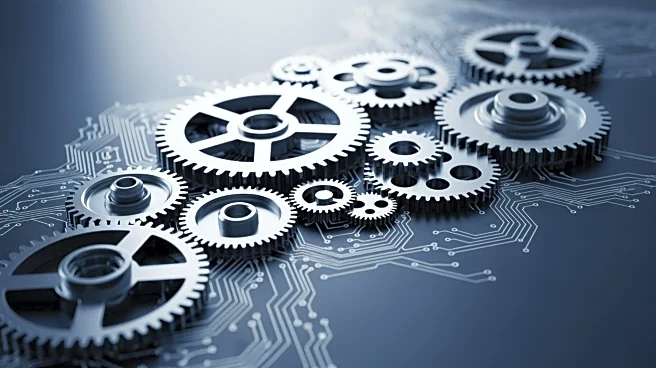What's Happening?
Researchers at the King Abdullah University of Science and Technology (KAUST) have discovered marine bacteria capable of digesting polyethylene terephthalate (PET), a common plastic used in products like
drink bottles and fabrics. This discovery was made through a global study that identified a unique structural feature in the bacteria's enzyme, PETase, known as the M5 motif. This motif acts as a molecular signature indicating the enzyme's ability to break down PET. The study found that these enzymes are widespread in the ocean, particularly in areas with high plastic pollution. The research highlights the evolutionary adaptation of microorganisms to human-made pollution, as these bacteria have developed the ability to use plastic as a carbon source in environments where carbon is scarce.
Why It's Important?
The discovery of plastic-eating bacteria in the ocean is significant as it offers a potential new avenue for addressing the global plastic waste crisis. While the natural degradation process in the ocean is too slow to counteract the vast amounts of plastic entering marine environments, the enzymes identified could be optimized for use in recycling facilities on land. This could lead to more efficient plastic degradation processes, reducing reliance on traditional waste management methods and potentially decreasing the environmental impact of plastic waste. The ability to harness these enzymes for industrial use could transform recycling practices and contribute to a more sustainable approach to managing plastic waste.
What's Next?
The next steps involve optimizing these naturally occurring enzymes in laboratory settings to enhance their efficiency in breaking down plastics. Researchers aim to develop these enzymes for use in treatment plants and potentially for household applications. This could involve genetic engineering to replicate and enhance the natural mechanisms observed in the oceanic bacteria. If successful, this could lead to the development of new technologies for plastic recycling, providing a scalable solution to the plastic waste problem. The scientific community and industry stakeholders will likely focus on translating these findings into practical applications that can be implemented on a large scale.
Beyond the Headlines
The discovery of plastic-degrading bacteria also raises questions about the broader implications of human pollution on natural ecosystems. It highlights the resilience and adaptability of microorganisms in the face of environmental changes. However, it also underscores the urgency of addressing plastic pollution at its source, as the presence of these bacteria does not negate the immediate risks posed to marine life and human health by plastic waste. The study serves as a reminder of the interconnectedness of human activities and natural systems, emphasizing the need for comprehensive strategies to mitigate environmental impacts.









